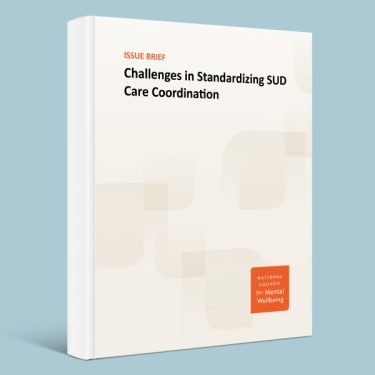
Rebuilding Purpose: Addressing Identity and Recovery in Veterans
Transitioning from military service to civilian life is a journey unlike any other. For veterans, it’s not just about finding a new routine; it’s about finding a new identity, a new community and new ways to manage the unique challenges they’ve faced. These often include mental health challenges, substance use, and the complex interplay between the two.
The Void Left Behind
Military service shapes more than just habits or career paths. It instills a deep sense of purpose, belonging and structure. Members of the military know their mission, their place in the hierarchy and the role they play in protecting something greater than themselves. Their camaraderie is forged through extraordinary challenges that reinforce a strong collective identity, where personal purpose is intertwined with the team and the mission. But after discharge, the sudden loss of this structure and community can leave many veterans struggling to find their place in the civilian world.
Without the clear mission and support network they once relied on, many veterans experience uncertainty, isolation and a loss of purpose. At the same time, the external controls of military life — like zero-tolerance policies, routine drug testing and strict accountability — are no longer in place. Without these protective structures, substance use can evolve into a method of coping.
More than 10% of veterans are diagnosed with a substance use disorder, and rates of illicit drug use rise after leaving active duty. Veterans are more likely than non-veterans to use alcohol (56.6% vs. 50.8%) and report heavy drinking (7.5% vs. 6.5%). Pain management is another critical factor, with 66% of veterans reporting pain and over 9% experiencing severe pain. This places them at higher risk for opioid dependency and overdose. Veterans also have higher rates of mental health disorders than the civilian population, an additional risk factor for substance use disorder development.
With high prevalence and multiple risk factors at play, veterans need tailored substance use treatment that recognizes how military service — and its loss — shapes their recovery. For many veterans, it’s not just about quitting substances; it’s about rebuilding the structure and sense of purpose that once guided their lives.
The Role of Identity in Treatment
Identity shapes how we see ourselves and our place in the world. Many veterans enter the military young — 87% of recruits are between ages 18 and 24 — making their sense of self deeply tied to their service. The discipline, stoicism and self-reliance ingrained during military service are essential for survival, but they can become barriers in treatment. Veterans may resist vulnerability, delay seeking help or see their struggles as personal failures. When substance use is layered with trauma or mental health challenges like PTSD, depression, anxiety or traumatic brain injuries, these feelings of shame and isolation deepen. These conditions not only distort self-perception but also make it even harder to envision a future without substances, reinforcing a cycle that keeps many veterans from reaching out for support.
Effective substance use recovery for veterans must go beyond managing cravings and addressing trauma to help veterans rediscover their sense of purpose and meaning. Identity reconstruction in treatment involves helping veterans redefine who they are outside of the military. This means integrating their service experiences into a broader life story, one that acknowledges their strengths without letting military experiences define them entirely.
Veteran treatment and recovery programs must help veterans answer critical questions: What matters to me now? What values and strengths can I carry forward? How can I create structure and purpose that aligns with my new life? By integrating these elements, identity reconstruction gives veterans the tools to move beyond a sense of being “broken” and toward seeing themselves as resilient and capable of reinvention.
Linking Identity Reconstruction to Recovery
Identity reconstruction in substance use treatment provides a foundation for long-term recovery. In practice this looks like combining evidence-based therapeutic approaches with practical tools to rebuild purpose and structure. This isn’t just about “doing meaningful activities,” but about creating the conditions for stability and wellbeing that reduce reliance on substances.
Narrative therapy is one such approach, helping veterans reframe their military service as an important chapter of their lives, rather than the defining one. By viewing their struggles as part of a broader story, veterans can reclaim a sense of agency and use their experiences as a foundation for new goals.
Equally important is peer support, which fosters trust, reduces stigma and recreates the camaraderie many veterans lose after service. Connecting with others who have faced similar challenges can instill hope in the possibility of reinvention, provide a sense of accountability and help veterans rebuild connection and routine in a way that feels familiar and supportive
Beyond therapy and peer support, assistance in engaging with purpose-driven activities can provide the structure many veterans need in recovery. Volunteering, education, employment and creative pursuits can channel personal strengths into new roles that offer routine and direction. These activities replace the external accountability of military life with self-directed purpose, helping veterans take ownership of their recovery and rediscover how their skills can contribute to their civilian lives.
Moving Forward With Purpose
Veterans don’t leave their military experiences behind; they carry them forward. Effective treatment and recovery must address the particular challenges veterans face by prioritizing identity reconstruction. This means helping veterans rebuild structure, rediscover purpose and create a clear sense of who they are outside of the service. By addressing these deeper challenges, rather than focusing solely on the more visible symptoms of addiction, we can provide veterans with the foundation they need for long-term recovery. When recovery systems embrace this approach, they not only honor veterans’ service but also help them build lives grounded in resilience and stability.
Author
Senior Advisor, Substance Use Disorder in the Strategy and Growth Office
National Council for Mental Wellbeing
See bio



